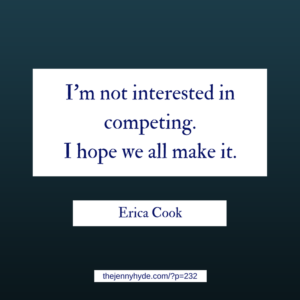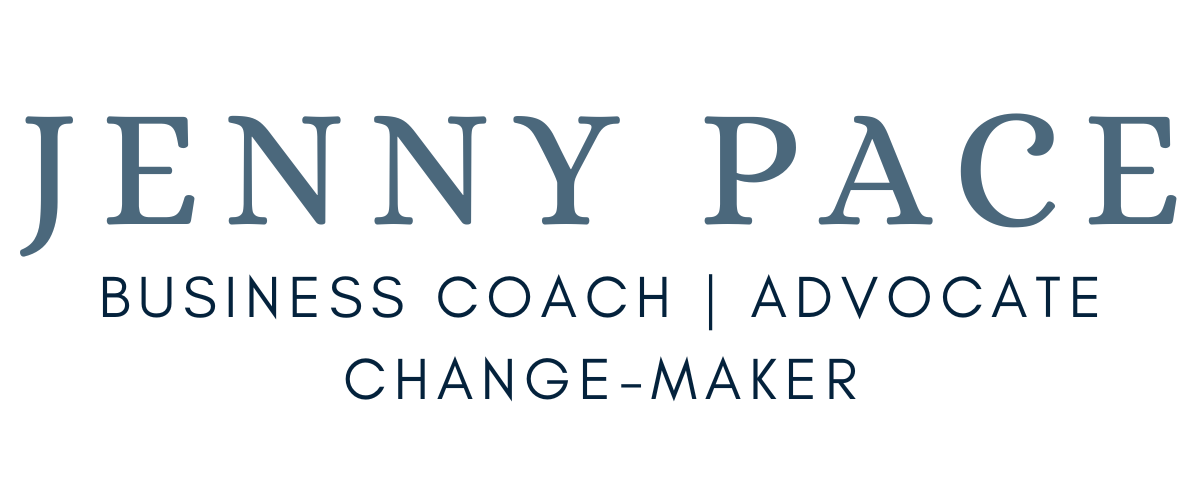 Every Friday I post a “here’s the thing” blog. “Here’s the thing” is something my mum (and many other wise people) like to say when they’re about to make a good point. Hopefully these posts are also good points.
Every Friday I post a “here’s the thing” blog. “Here’s the thing” is something my mum (and many other wise people) like to say when they’re about to make a good point. Hopefully these posts are also good points.
I know, I know. “Abundance”. It’s a Stephen Covey Americanism. I don’t think I used, thought or wrote the word until long after I read his book several years ago. And I didn’t realise it then, but the idea of abundance has (slowly, gradually) had a really big impact on my beliefs. Cheers, Steve.
So while I appreciate it might feel a bit cheesy, I’m going to ask you to bear with me, because I really believe that abundance – the idea that there’s enough and more for everyone – will have a profound impact on your business.
Money. Customers. Ideas. PR features. Holidays. Food. Friends. Lovers.
There are things we believe we’ll never have enough of, but in our minds, they are in shockingly limited supply. You may worry about some or all of that list above. You might have your own unique additions, but those are broadly the biggies for small businesses and people in general.
We believe that we need money to live – four walls, ceiling, food, tax. We believe that we need customers to give us money (and boy do we worry that there won’t be any customers left for us in six months). We believe that we’ve only got so many ideas inside us, that they’ll run out and then no one will want to work with us.
I’m not about to tell you to stop thinking about how to get more customers, or whether your profit margins are healthy. These are all important things to think about. It’s the way we think about them, and our beliefs about them, that are important.
The opposite of abundance is scarcity. If we believe there aren’t enough customers for everybody, that we’ll lose out, that it can’t be done if we’re not chosen for a homepage feature, then we limit ourselves. We’ll stop seeing the opportunities to find customers, connect with them, be nice to them, because we don’t believe they exist.
I see this in my clients. They’re still in scarcity mode, where they don’t have enough. They’re worried about investing in another staff member or stock. They’re worried they won’t sell enough to justify the cost. And my face says ‘huh?’. They’re serious. They can’t see how much it’s going to benefit them and, honestly, how much it’s going to be fine. When you invest, you step up. You make it work.
When we believe we don’t have any (or enough) money, so we don’t spend any money, so we don’t get any return. We create our own false economies – hey, look, I bought this cheaper version! Oh, wait, it doesn’t work so I have to spend just as much if not more on making it work. Or, I can’t afford to hire someone, so I’ll have to say no to new opportunities.
When you believe in abundance, what you value changes. You see things differently. You see that hiring someone with more experience or enthusiasm gives you more than hiring the person who’ll do it for less.
You see that there are enough customers for everyone. Yes, competition exists and it’s important to think about where you sit in the market, what you offer that others don’t, and all those things. But when you simply focus on connecting with the customers who want your products, rather than the customers who want someone else’s products – that’s when you make meaningful connections and things start to grow.
Here’s the thing:
Fear takes over. A lot. Especially if you’ve been in places that felt truly scarce, where you really didn’t have any money, or a safe place to live, or anyone to call on when you needed help. The recent recession didn’t help, and it certainly doesn’t feel like it’s completely over when you read the headlines these days.
It’s hard to un-remember those times, but they’re just a memory. You did survive them. There’s much more than there was then.
Imagine you’re in a world where everyone has enough, if they choose to see it. There are people who want you to do your thing, successfully. They want your products, your brand, your voice. They see value in what you offer. But you have to give them something so that they can see it.
Believing in abundance is very much connected to your self-esteem. Do you believe you’re worthy of everything you want and need? And that’s not something one blog post can instil in you.
But my parting message is this: believe, just a little bit, that there is more than enough for everyone. Take this little nudge towards being relaxed about buying in more stock than you think you need, or employing someone really good. When you step up your input, it shines through. You’re taking yourself seriously, and so will your customers.




